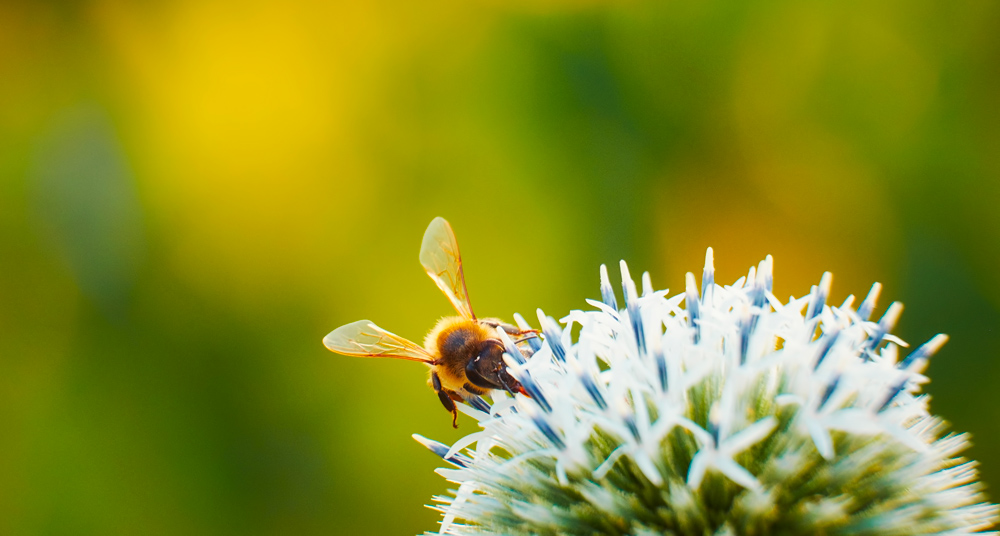
07 December HOW TO PRESERVE BIODIVERSITY AT WORK?
La biodiversity brings together all of living beings and their interactions in ecosystems in which they live.
This biodiversity is essential for our species: it responds to our primary needs (supply of oxygen, water, food); it also provides raw materials essential to our economic development. Biodiversity is also essential for farming (pollinating animals, organism involved in soil renewal) but also for the research : include medicines from nature.
Preserving it means ensuring that this living thing remains in good health.
Today this biodiversity is eroding due to human activities: 1 million animal and plant species are threatened with extinction according to the Intergovernmental Science and Policy Platform on Biodiversity and Ecosystem Services (ipbes).
The ipbes published a report on Monday July 11, 2022 stressing the importance of not confining nature to its economic dimension alone but of taking take into account the diversity of biodiversity values in order to preserve it:
– Market value: natural resources
– Inherent values: rights of living beings
– Relational values: link between human and non-human
THE MAIN RESPONSIBLE FOR THE LOSS OF BIODIVERSITY
INTENSIVE FARMING
This type of agriculture, which promotes productivity and yield, relies on pesticides, fertilization soils and mechanization which have a very unfavorable impact on life.
>> ALTERNATIVE AND ECOLOGICAL SOLUTIONS:
Agriculture which is based on techniques agroecology and permaculture is booming: these techniques are inspired by nature for crops by banning fertilizers and insecticides and by optimizing surfaces and resources (water/sun)
Create some areas favorable to biodiversity with our selection of Takagreen suppliers:
- Urban vegetable gardens and shared gardens in companies using the techniques of agroecology and permaculture: Place in the soil, Phew, Growsters, Go to the vegetable garden, Urban gardens, Heaven my radish, ground court, Ecovegetal
- Roofs in favor of biodiversity : PowerOfMoss, BiodiversiTop, Wildroof
- Agroecological farms : organic and local fruits and vegetables according to the principle of market gardening eco-culture : Neofarm
- Permaculture training : Miss permaculture , inspire&act
- Soil decontamination to preserve and increase biodiversity natural sorb
- eco-grazing which involves grazing animals herbivores (mainly goats and sheep) to maintain green spaces in a natural way. It's a alternative to mechanical maintenance green spaces and the use of phytosanitary products. By introducing local and resistant animals, eco-grazing also allows the preservation of old and hardy breeds. Ecozoone,Greensheep, Ecomouton, My Local Shepherd, ecopaturons savoy, golden sheep , Vitagreen, Urban sheep, western sheep, Biocenys
L’URBANISATION MASSIVE
L’urbanisation massive to the detriment of natural and agricultural surfaces degrades biodiversity: lack of vegetation, soil artificialisation, pollution, higher temperature... This urbanization is a threat to bees and insects.
>> ALTERNATIVE AND ECOLOGICAL SOLUTIONS:
- Bringing nature back into the urban environment : today nearly half of the bees are threatened - yet they represent an essential link in biodiversity by participating in nearly 80% of the pollination of plant species. Set up a beehive or sponsor a hive to protect bees and preserve biodiversity with our selection of suppliers:
A bee's dream, bee seed, bee confidence, Bees and the environment, Be keeper, Apimelis, Appeal, Mellona, Beeguard, Pollinius, Livestock, Beesolis
- Participate in reforestation projects
Ecotree : sustainable investment, Reforest'action : finance reforestation and forest preservation
- Get support on biodiversity projects:
Ecotope : study of fauna and flora, The great Romanesco : urban agriculture study office; Environment mosaic
Simple and local actions around biodiversity: Biocenys
The climate crisis and the covid crisis have made people aware of the importance of nature and respect for life : urban and peri-urban green spaces are being developed to create places of refuge for pollinators and insects, produce local food, reconnect with nature, promote well-being, etc.
From Wednesday December 07, 2022 to Monday December 19, the CoP15 on biodiversity will be held, the objective of which will be to set a new global framework to protect living things by 2030.

